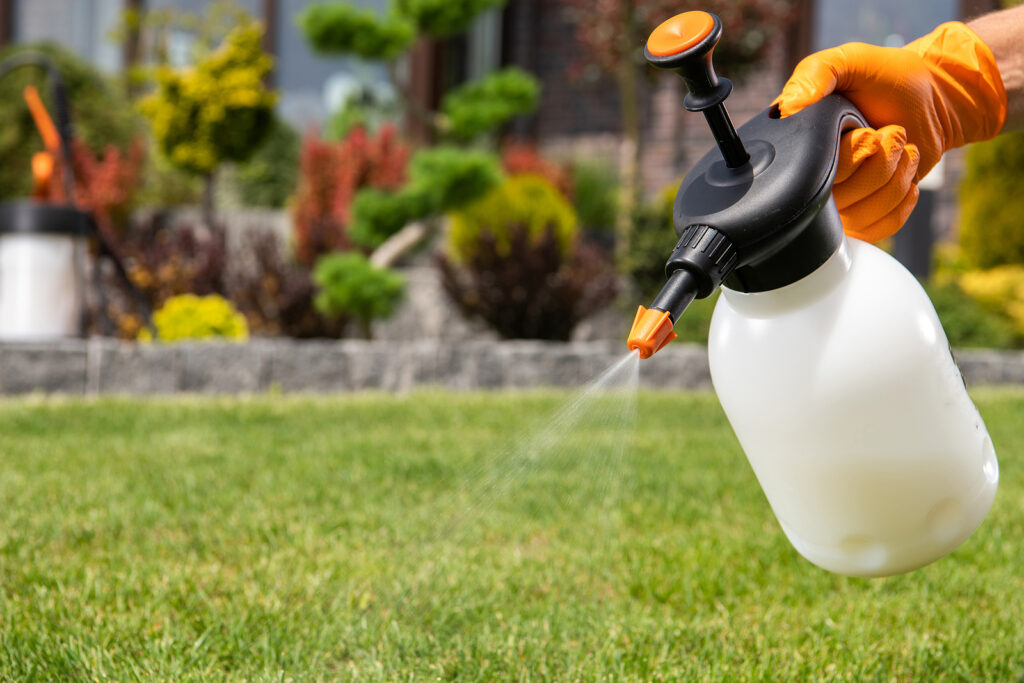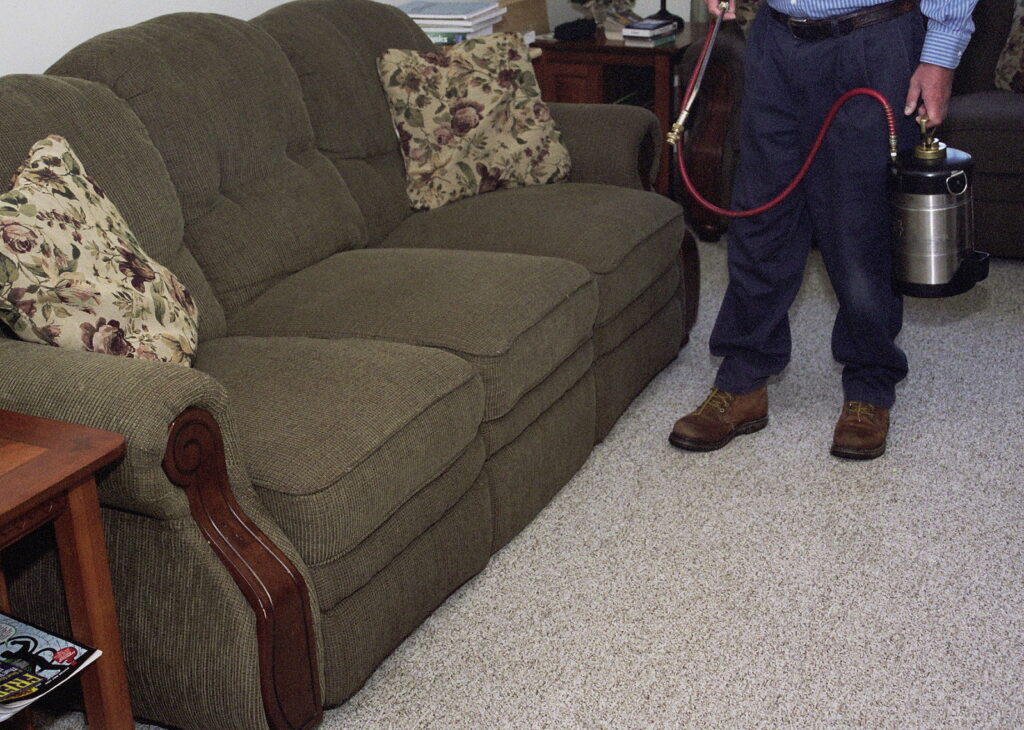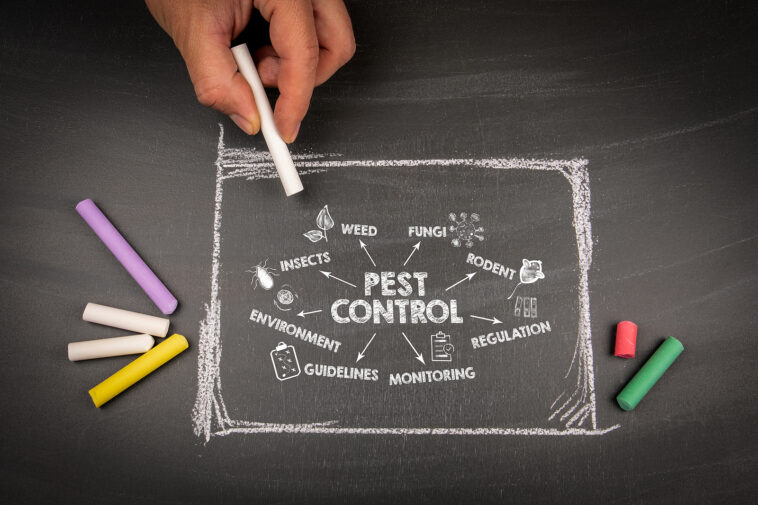Pest Control DIY vs. Professional: What You Need to Know
Dealing with pest infestations has been my worst nightmare as a homeowner. From relentless ants infiltrating my kitchen to menacing termites wreaking havoc on my home's structure, and the occasional rodents making themselves at home in my attic, pests have presented a myriad of challenges for me.
When confronted with a pest issue, I often find myself torn between the decision of handling it on my own or enlisting the help of professional pest control services. In this comprehensive guide, I aim to explore the advantages and disadvantages of both approaches, ultimately assisting me in making a well-informed decision that suits my specific situation.
Understanding Pest Control
Pest control is the practice of managing and regulating unwanted organisms, commonly referred to as pests, that can have detrimental effects on human health, property, and the environment. Pests can encompass a wide range of organisms, including insects, rodents, birds, fungi, and even unwanted plants. The primary goal of cook's pest control is to prevent or minimize the damage and negative impacts caused by these organisms.
Why is Pest Control Necessary?
Pests can pose various threats, which necessitate the need for effective pest control measures:
- Health Risks: Many pests can carry and transmit diseases to humans and animals. For example, mosquitoes can transmit malaria and dengue fever, while rodents can carry diseases such as hantavirus and leptospirosis.
- Property Damage: Pests like termites, carpenter ants, and wood-boring beetles can cause significant structural damage to buildings and wooden structures. This damage can be expensive to repair.
- Crop Protection: In agriculture, pests can destroy crops and reduce yields. Effective pest control costs is essential to safeguard food production and maintain agricultural productivity.
- Ecological Balance: In some cases, non-native or invasive species can disrupt ecosystems by outcompeting native species, leading to imbalances in biodiversity.
- Quality of Life: Pests such as cockroaches, bed bugs, and fleas can negatively impact the quality of life by infesting homes, causing discomfort, and affecting mental well-being.

Methods of Pest Control
Pest control methods can be broadly categorized into two main approaches: chemical and non-chemical methods.
Chemical Pest Control:
Chemical pest control involves the use of pesticides, insecticides, herbicides, and fungicides to kill or repel pests. These chemicals are often formulated to target specific types of pests. Chemical pest control can be effective in eradicating pests quickly, but it should be used with caution due to potential environmental and health risks.
Pros of Chemical Pest Control:
- Fast and efficient in controlling pests.
- Suitable for severe infestations.
- Can be applied to large areas.
Cons of Chemical Pest Control:
- May harm non-target organisms.
- Can lead to pesticide resistance in pests.
- Environmental and health concerns.
Non-Chemical Pest Control:
Non-chemical pest control methods aim to manage pests without using synthetic chemicals. These methods can be more environmentally friendly and safer for humans and non-target species. Non-chemical approaches include:
Biological Control
This method involves introducing natural predators, parasites, or pathogens to control pest populations. For example, ladybugs are released to combat aphids, a common garden pest.
Mechanical Control
Mechanical methods physically remove or block pests from the affected area. Examples include using traps, barriers, or netting to prevent pests from entering a location.
Cultural Control
Cultural practices involve modifying the environment to make it less favorable for pests. Crop rotation, sanitation, and proper waste management are examples of cultural control methods.
Natural Repellents
Natural substances such as neem oil, diatomaceous earth, and garlic can deter pests without harming the environment or human health.
The DIY Approach to Pest Control
Advantages of DIY Pest Control
1. Cost-Effective
One of the most significant advantages of the DIY approach is cost savings. Purchasing over-the-counter pest control ants products is generally more budget-friendly than hiring a professional service. You can find a variety of options, from sprays to traps, suited for different pest problems and budgets.
2. Immediate Action
When you spot a pest problem, you can take immediate action with DIY methods. You don't have to wait for an appointment with a professional exterminator, which can be especially crucial when dealing with fast-reproducing pests like ants or cockroaches.
3. Learning Experience
DIY pest control can be a learning experience. By researching and applying your own solutions, you gain knowledge about the pests in your area, their behavior, and the most effective control methods. This knowledge can help you prevent future infestations.
4. Convenience
DIY pest control allows you to address pest issues on your schedule. You don't have to wait for a service appointment or disrupt your daily routine. This convenience can be particularly useful for busy individuals or families.
5. Customization
With DIY pest control prices, you have the flexibility to tailor your approach to the specific pest problem you're facing. You can choose the products and methods that align with your preferences and needs, ensuring a more personalized solution.
Disadvantages of DIY Pest Control
1. Limited Expertise
While DIY methods can be effective for minor pest problems, they often lack the expertise and resources of professional price of pest control services. Some pests, like bed bugs or termites, require specialized knowledge and equipment for effective eradication.
2. Safety Concerns
Using pesticides and other cost of pest control chemicals can be hazardous if not handled properly. DIY enthusiasts may not have the training to use these products safely, which can lead to health risks for themselves, their family, and their pets.
3. Risk of Incomplete Eradication
Inexperienced individuals may not completely eliminate a pest problem, allowing it to return and potentially worsen over time. This can lead to more extensive damage and higher costs in the long run.

The Professional Pest Control Approach
Advantages of Professional Pest Control
1. Expertise
Professional pest control technicians are trained and experienced in dealing with a wide range of pests. They have in-depth knowledge of pest biology, behavior, and the most effective control methods. This expertise increases the chances of successful pest eradication.
2. Customized Solutions
Professionals can assess your specific pest problem and tailor their approach accordingly. They use a combination of methods, including chemical treatments, traps, and exclusion techniques, to create a customized pest control plan that addresses your unique needs.
3. Long-Term Prevention
Professional pest control services not only eliminate current infestations but also provide preventive measures to minimize the risk of future problems. This can include regular inspections and ongoing maintenance, ensuring your home remains pest-free.
4. Time-Efficiency
Pest control professionals are equipped with the right tools and resources to efficiently tackle pest problems. They can complete the job quickly and effectively, saving you time and minimizing disruption to your daily routine.
5. Cost-Effective
While it may seem like a DIY approach is more cost-effective, professional pest control can actually save you money in the long run. Pest control experts can eliminate pests efficiently, preventing property damage and potential health issues, which can be expensive to address later.
Disadvantages of Professional Pest Control
1. Cost
Hiring a professional pest control service is typically more expensive than the DIY approach. The cost varies depending on the type and severity of the infestation, as well as the location and size of your home.
2. Scheduling
You may need to wait for an available appointment when hiring a professional service, especially during peak pest seasons. This delay can allow the infestation to worsen if not addressed promptly.
3. Chemical Use
Professional pest control services often use pesticides and chemicals to eliminate pests. While these products are generally safe when applied by trained technicians, some individuals have concerns about chemical exposure.
Making an Informed Decision
Deciding whether to opt for DIY pest control or hire a professional service depends on several factors:
1. Type of Pest
Consider the type of pest you're dealing with. Common pests like ants, spiders, and small rodents can often be effectively managed with DIY methods. However, more challenging pests like bed bugs, termites, or large infestations may require professional intervention.
2. Severity of Infestation
The severity of the infestation is a crucial factor. A minor pest problem may be manageable with DIY solutions, but a severe infestation can quickly spiral out of control, necessitating professional help.
3. Health and Safety Concerns
If you have children, pets, or family members with allergies or sensitivities, you may be more inclined to choose professional pest control to ensure their safety.
4. Budget
Your budget plays a significant role in your decision. DIY methods are generally more cost-effective, but professional services offer a higher likelihood of complete eradication and long-term prevention.
5. Time Constraints
Consider your availability and how quickly you need the pest problem resolved. DIY methods allow for immediate action, while professional services may require scheduling and waiting for an appointment.
Organic Pest Control for Home and Garden
Organic pest control is a sustainable and eco-friendly approach to managing pests in both home gardens and agricultural environments. This environmentally conscious method relies on harnessing the power of natural and non-toxic solutions to keep unwanted insects and pests at bay, all while preserving the delicate balance of beneficial insects and the overall health of the soil.
One of the key principles of organic pest control is using alternative solutions to harmful chemical pesticides. Neem oil sprays, for example, have proven to be highly effective in deterring a wide range of pests without posing any harm to the environment. In addition, homemade insecticidal soaps made from common household ingredients can provide an affordable and eco-conscious alternative to store-bought chemical products.
By adopting organic pest control practices, you can maintain a thriving garden without resorting to harmful chemicals that can have adverse effects on the environment, pollinators, and even human health. These methods not only help you protect your plants from pest damage but also contribute to the sustainability of your gardening efforts.
DIY Pest Prevention Tips
Preventing pests from invading your home is often more manageable and cost-effective than dealing with an infestation once it occurs. By adopting a proactive approach to pest prevention, you can minimize the need for pest control measures. Here are some practical DIY pest prevention tips to help keep your home pest-free:
Maintain Cleanliness
One of the most effective ways to prevent pests is to keep your home clean and free of food debris, crumbs, and standing water. Pests are attracted to food sources, so by denying them access to these resources, you can deter them from entering your home.
- Regular Cleaning: Clean your kitchen and dining areas regularly, sweeping up crumbs, wiping down surfaces, and washing dishes promptly.
- Trash Management: Ensure that trash cans have tight-fitting lids, and empty them regularly. Clean trash cans to remove food residue and odors.
- Pet Food: If you have pets, don't leave their food and water bowls out overnight. Store pet food in airtight containers.
- Food Storage: Store food in sealed containers, and avoid leaving food out on countertops.
Seal Entry Points
Pests can enter your home through even the tiniest openings. Inspect your home for potential entry points and seal them off to prevent pests from getting inside.
- Caulk and Seal: Use caulk to seal cracks and gaps around windows, doors, pipes, and utility openings. Pay special attention to areas where utilities enter your home.
- Weatherstripping: Install weatherstripping on doors and windows to create a tight seal and prevent pests from squeezing through gaps.
- Mesh Screens: Ensure that all windows and doors have intact screens to keep out flying insects.
Eliminate Moisture
Many pests are attracted to damp environments. Reducing moisture levels in and around your home can help deter pests.
- Fix Leaks: Repair any leaks in plumbing, faucets, or roofs promptly to eliminate water sources.
- Proper Ventilation: Use exhaust fans in bathrooms and kitchens to reduce humidity levels.
- Drainage: Ensure that gutters and downspouts direct rainwater away from your home's foundation.
- Dehumidifiers: Use a dehumidifier in basements or crawl spaces to reduce humidity.
Landscaping and Yard Maintenance
The area surrounding your home can also attract pests. By maintaining your yard and landscape, you can reduce the risk of pests entering your home.
- Trim Vegetation: Keep trees and bushes trimmed away from your home's exterior to prevent pests from using them as a bridge to enter.
- Remove Debris: Clear away leaf litter, woodpiles, and other debris that can provide hiding spots for pests.
- Regular Inspections: Periodically inspect your yard for signs of pest activity, such as ant hills or rodent burrows.
Pest-Resistant Construction
If you're building or renovating your home, consider incorporating pest-resistant construction techniques:
- Screen Vents: Use fine-mesh screens on attic and crawl space vents to prevent pests from entering.
- Secure Garbage Bins: If you store garbage bins outside, make sure they have tight-fitting lids to prevent access to pests.
- Termite Barriers: Install physical or chemical termite barriers during construction to deter termite infestations.
Regular Inspections
Frequent inspections of your home can help you identify pest problems early, before they become major infestations. Look for signs such as droppings, chewed wires, or damaged wood.
Frequently Asked Questions (FAQs) About Pest Control
When it comes to pest control, homeowners and businesses often have many questions. Here, we address some of the most common queries related to pest control to help you better understand this essential aspect of property management.
1. What are common household pests?
Common household pests include ants, cockroaches, spiders, flies, mosquitoes, bed bugs, rodents (mice and rats), termites, and fleas. These pests can invade homes and cause various problems, from structural damage to health concerns.
2. How can I prevent pests in my home?
To prevent pests, follow these tips:
- Keep your home clean and free of food crumbs and spills.
- Seal gaps and cracks in walls, doors, and windows.
- Store food in airtight containers.
- Regularly empty and clean trash cans.
- Eliminate standing water sources.
- Trim vegetation away from your home.
- Schedule routine inspections for signs of pests.
3. Are DIY pest control methods effective?
DIY pest control methods can be effective for minor pest problems. However, their effectiveness depends on the type of pest and the severity of the infestation. Some pests, like termites or bed bugs, are best handled by professionals due to their resilience and ability to hide.
4. What are the risks of using chemical pesticides?
Chemical pesticides, if not used properly, can pose health and environmental risks. They may harm non-target organisms, contaminate soil and water, and contribute to pesticide resistance in pests. It's crucial to follow label instructions and consider non-chemical alternatives whenever possible.
5. When should I hire a professional pest control service?
You should consider hiring a professional pest control service when:
- You have a severe or persistent pest problem.
- The type of pest is difficult to identify or control.
- The infestation poses health or safety risks.
- DIY methods have proven ineffective.
- You want long-term prevention and a customized pest management plan.
6. What is Integrated Pest Management (IPM)?
Integrated Pest Management (IPM) is a holistic approach to pest control that combines various methods, including biological, mechanical, cultural, and chemical controls. IPM emphasizes prevention, monitoring, and the least toxic methods to manage pests effectively while minimizing harm to humans and the environment.
7. Are natural pest control methods effective?
Natural pest control methods, such as biological controls (using natural predators), botanical repellents, and cultural practices, can be effective for certain pests and in specific situations. They are often preferred for their eco-friendly and safer attributes.
8. How can I choose the right pest control service?
When selecting a pest control service, consider the following:
- Check their credentials, licenses, and certifications.
- Ask for references or read online reviews.
- Inquire about their pest control methods and approach.
- Get multiple quotes for comparison.
- Ensure they provide a warranty or guarantee for their services.
9. Is pest control safe for pets and children?
Professional pest control services take precautions to ensure the safety of pets and children. They use targeted treatments and adhere to safety guidelines. When using DIY pest control products, it's essential to follow label instructions and keep pets and children away from treated areas until they are safe.
10. What should I do if I suspect a pest infestation?
If you suspect a pest infestation, it's essential to take action promptly. Start by identifying the type of pest and its severity. Depending on the situation, you can either attempt DIY control methods or contact a professional pest control service for an assessment and treatment plan.
Conclusion
In my journey as a homeowner, battling pest infestations has been a recurring challenge. I've learned that choosing between DIY pest control and professional help depends on various factors, such as the type of pest, the severity of the problem, safety concerns, budget considerations, and the urgency of the situation. For minor pest issues, the DIY approach offers cost-effective solutions and the satisfaction of hands-on learning.
However, when faced with formidable pests or when safety becomes a priority, professional pest control services have provided the expertise and peace of mind needed to protect my home. Additionally, my commitment to eco-conscious practices in my garden has led me to embrace organic pest control methods, contributing to the well-being of both my plants and the environment. Ultimately, finding the right balance between DIY and professional pest control has been crucial in maintaining a pest-free and harmonious living space.
Sources
https://www.epa.gov/safepestcontrol/dos-and-donts-pest-control




